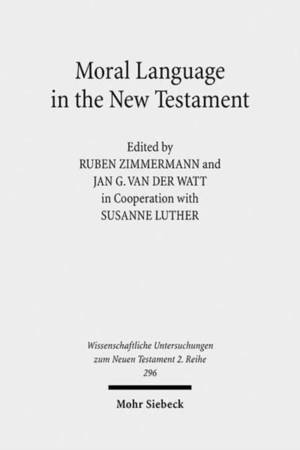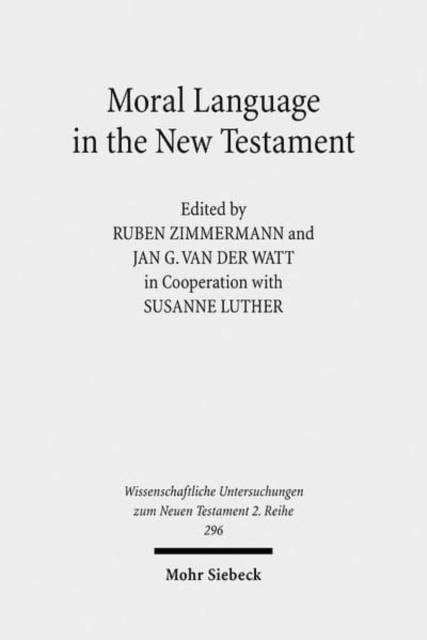
- Afhalen na 1 uur in een winkel met voorraad
- Gratis thuislevering in België vanaf € 30
- Ruim aanbod met 7 miljoen producten
- Afhalen na 1 uur in een winkel met voorraad
- Gratis thuislevering in België vanaf € 30
- Ruim aanbod met 7 miljoen producten
Zoeken
Moral Language in the New Testament
The Interrelatedness of Language and Ethics in Early Christian Writings. Kontexte Und Normen Neutestamentlicher Ethik / Contexts and Norms of New Testament Ethics. Volume II
€ 109,45
+ 218 punten
Omschrijving
This volume focuses on the interrelatedness of morality and language. Apart from explicit ethical statements, implicit NT moral language is analysed in three overlapping aspects based on the interpretation of concrete NT texts: an intratextual level (linguistic and analytic philosophical methods: syntactical form, style and logic), an textual and intertextual level (form criticism, discourse analysis) and an extratextual level (speech act analysis; rhetoric; reader-response criticism). With reference to analytical moral philosophy, the contributions address questions such as: Where does the ethical quality of a statement come from? Which linguistic devices are used to express ethics in the NT writings? In which way does the genre of the text influence its ethical meaning? Which pre- and intertexts are part of the ethical statements, in which way does the text refer to them? Which ethical impact did and do texts have on their readers? Which linguistic and rhetorical style is used to meet the addressees? Why do we consider a text powerful or polemic? Can we speak of an implicit ethical subject in the text from a literary perspective?
Specificaties
Betrokkenen
- Uitgeverij:
Inhoud
- Aantal bladzijden:
- 448
- Taal:
- Engels
- Reeks:
Eigenschappen
- Productcode (EAN):
- 9783161503542
- Verschijningsdatum:
- 31/12/2010
- Uitvoering:
- Paperback
- Formaat:
- Trade paperback (VS)
- Afmetingen:
- 153 mm x 229 mm
- Gewicht:
- 693 g

Alleen bij Standaard Boekhandel
+ 218 punten op je klantenkaart van Standaard Boekhandel
Beoordelingen
We publiceren alleen reviews die voldoen aan de voorwaarden voor reviews. Bekijk onze voorwaarden voor reviews.










